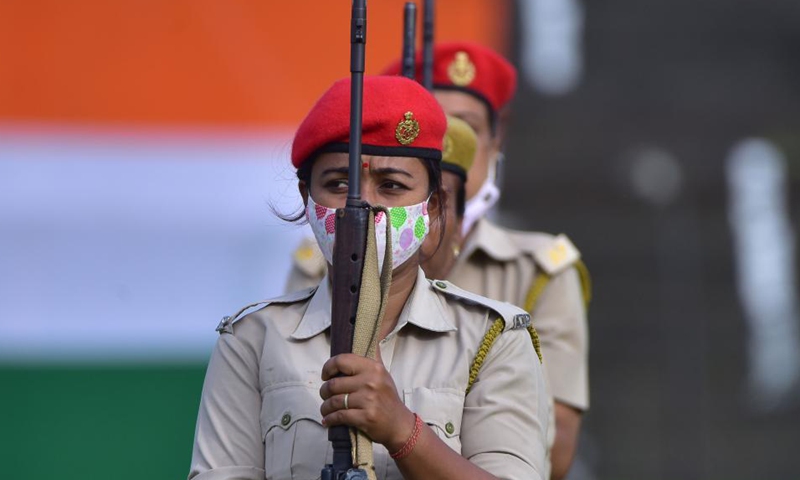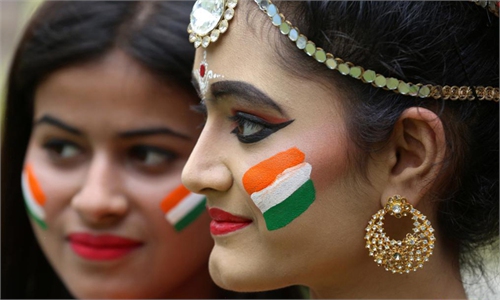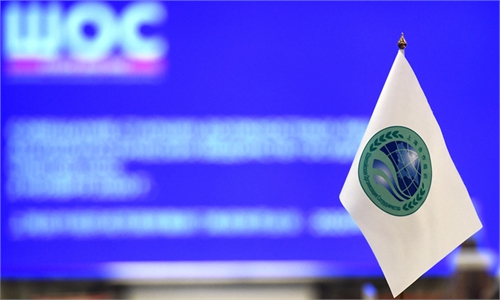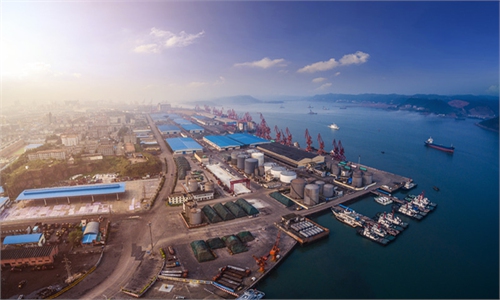GT Voice: What has hampered India's regional economic integration steps over past 75 years?

Indian policemen take part in a full dress rehearsal ahead of India's Independence Day in Nagaon district of India's northeastern state of Assam, Aug. 13, 2021.Photo:Xinhua
India celebrated its 75th Independence Day on Sunday, one day after its neighbor Pakistan. The two independent states, India and Pakistan, came into existence in August, 1947 as a result of the ending of the British India.The partition of the two territories sparked mass migration and ethnic violence, South Asia has long been overshadowed by its bitter legacy which still echoes through regional politics today. The historical issues have added complexity to regional economic development and trade cooperation, which seems a little bit awkward as Asian-wide economic integration gathers pace.
74 years on, India is now the world's sixth largest economy, with its GDP expanding more than 50 times to 135.13 lakh crore rupees ($1.82 trillion) in 2020. While it is true that many global financial institutions attached great importance to the high-speed development recorded by the Indian economy over the past decade, India's limited trade links with its neighboring countries have also attracted increasing attention.
South Asia remains one of the least economically integrated regions in the world, according to a study released by Brookings India in May 2020. Intra-regional trade was well below its potential, at only 5 percent of the region's global trade, because of "protectionist policies, high logistics cost, lack of political will and a broader trust deficit."
Over the years, India's relationship with Pakistan has been fraught with complications stemming from their history, which has had repercussions on intra-regional opportunities for economic and trade development. To be frank, India has had plenty of opportunities to strengthen cooperation with its neighbors, but often became hostage to long-standing historical problems.
For instance, in 2017, India openly expressed its refusal to join the Belt and Road Initiative (BRI) due to concerns over whether the China-Pakistan Economic Corridor, a flagship project under the BRI, would influence Jammu and Kashmir, a longstanding source of regional disputes between India and Pakistan.
Given India's poor infrastructure that has led to high logistics costs both at home and to neighboring countries, the rejection doesn't seem like a wise choice. And the choice years ago looks even more regrettable when Indian Prime Minister Narendra Modi announced Sunday that the country will soon launch a $1.35 trillion national infrastructure plan to boost its economy.
This is one of the too many examples as to how India's interference in economic issues from a political perspective hurt its own potential economic development.
Now as the Indian economy is pummeled by the coronavirus pandemic, the urgency of strengthening cooperation with neighboring countries is increasing. But some historical and political issues still appear to be standing in the way. The country should reflect on the need to remove fraught political calculations from potential economic cooperation with its neighbors and do what is best for Indians and for the region.



